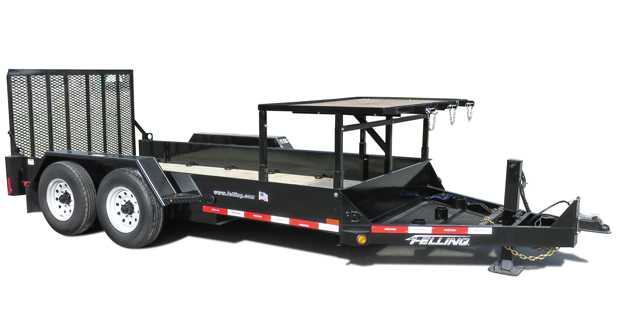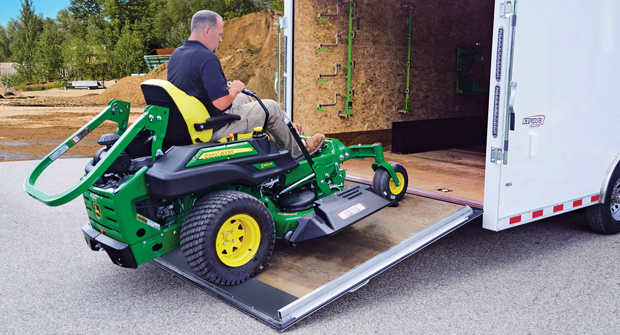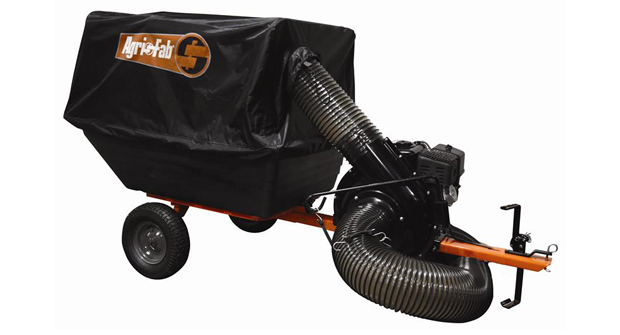
From the size to the type of enclosure, there are several options when it comes to selecting a truck trailer.
Pros and cons
Overall, landscape professionals continue to opt for larger trailers, says Mitchell Bender, president of Bravo Trailers. In the past, Mitchell says pros preferred trailers were 6-by-12 feet — and now it’s 8 1/2-by-18 feet or larger. The type of trailer must be compatible with the truck’s axle rating, as larger trailers will not be compatible with pickups.
Small companies tend to use open trailers, Bender says, while large firms typically select enclosed trailers to haul with either a pickup or dump truck. Open trailers cost less than enclosed ones, but they can also pose security risks to thefts and won’t protect the equipment or crews from the elements like an enclosed one. Enclosed trailers also give crews a place to eat lunch and can serve as a rolling billboard to advertise the company.
Understanding how they will use the trailer will help landscapers choose the right kind for their needs, says Nathan Uphus, sales manager for Felling Trailers. For example, standard ramp and tilt-bed models are good for hauling equipment, but they lack the ability to offload materials efficiently.
“A lawn maintenance professional using a standard landscape model ramp trailer could haul mowers to a site and haul away grass clippings, but they would need to be unloaded by hand as opposed to unloading via dump feature,” Uphus says. “Several models are available that offer value in usability and overall productivity, but these models generally come at a higher cost.”
What to look for

store equipment. (Photo: Bravo Trailers)
Durability is one of the most important components to consider when choosing a trailer, Bender says. From natural wear and tear to damage caused by crews, trailers get subjected to a lot during the workday. Having one with reinforced corner posts and walls, protected wheel box corners, heavy-duty doors, protected floors and commercial-grade materials will extend the lifetime.
Trailers with translucent roofs, which provide better visibility during loading and unloading, is a trend Bender has noticed among landscapers. Trailers also can be set up as charging stations for battery-powered equipment.
When deciding what size trailer they need, professionals should think about the space the equipment will take up, the amount of additional room needed to move around it and properly secure it for transport, and the total weight being hauled, Uphus says.
“The first two questions generally asked are, ‘What will the trailer be hauling, and what is being used to pull the trailer?’” Uphus says. “It’s necessary that the total weight of the equipment is less than the maximum rated carrying capacity of the trailer.”
Often, operators will only factor in the dry weight of the equipment as specified by the manufacturer, Uphus says. They forget to consider the weight added by optional attachments, equipment securement devices, handheld equipment, fuel, parts or any additional items added to the trailer. The weight of those can add up quickly.
Professionals also need to choose commercial trailers that can withstand daily use for all equipment and materials, instead of ones intended for recreational use. “You want to be able to grow into it a little more, instead of growing out of it immediately,” Bender says.
To avoid costly downtime, professionals should focus on finding a durable and efficient trailer that meets the needs of their crews now and in the future.
“A trailer is part of the team and one of the most important pieces of equipment you have to get the job done well,” Bender says. “Trailers don’t have to be the weak link of operations anymore.”

